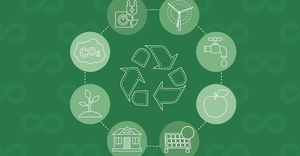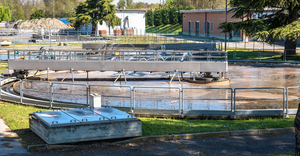The report provides a holistic view on the sustainability benefits that flexible packaging offers.
The Flexible Packaging Association (FPA) has released a new report on sustainable packaging called “A Holistic View of the Role of Flexible Packaging in a Sustainable World.”
FPA commissioned PTIS, LLC to provide a holistic view on the sustainability benefits that flexible packaging offers, provide foresight into future sustainability implications for flexible packaging and develop six LCA case studies comparing flexible packaging to other packaging formats across a range of products.
The report focuses on the segment of the industry that adds significant value to flexible materials, usually by performing multiple processes such as printing, laminating multiple layers and adding coatings, all of which aid in the performance of the material, improve the consumer/user experience and/or extend the shelf life of the product. The report focuses on the U.S. perspective but includes global data and context to provide a broader picture. It also looks at the current state of flexible packaging and provides foresight into potential future implications.
For the report, six different LCA case studies were developed using the EcoImpact-COMPASS LCA software, which allows for quick lifecycle comparisons between different package formats. The case studies include packaging for baby food, cat litter, ground coffee, laundry detergent pods, motor oil and single-serve, juice-flavored beverages. The results from the case studies show that flexible packaging has more preferable environmental attributes for carbon impact, fossil fuel usage, water usage, product-to-package ratio and material to landfill when compared to other package formats.
Flexible packaging offers a number of sustainability benefits throughout the entire lifecycle of the package when compared to other package formats, including material/resource efficiency, lightweight/source reduction, transportation benefits due to inbound format and lightweight nature, shelf life extension, reduced materials to landfill, high product-to-package ratio and beneficial lifecycle metrics.
Despite the number of sustainability benefits, there are challenges facing the flexible packaging industry. The main challenges are post-consumer packaging material collection and recycling. There is currently a lack of recycling options for multi-material, laminated films, such as snack bags and foil pouches, which are difficult to separate into their various material substrates.
The industry is responding to these challenges with new initiatives to improve the sustainability profile of flexible packaging. These include technologies to drive recycling and collection and auto-sortation at scale of flexible materials, investigate new materials including compostable or bio-based structures and enhance processing technologies that extend and increase consumer participation.
There are several industry collaborations that are working to identify technologies to make collection and sortation of flexible packaging waste feasible and economically effective, as well as research into chemical recycling, which degrades the mixed plastics into monomers or basic chemicals to turn into new products. Other programs such as waste-to-energy, which use the combustible energy from difficult-to-recycle plastics, are widely used in Europe and Asia and may provide additional recovery processes in the U.S.
About the Author(s)
You May Also Like


